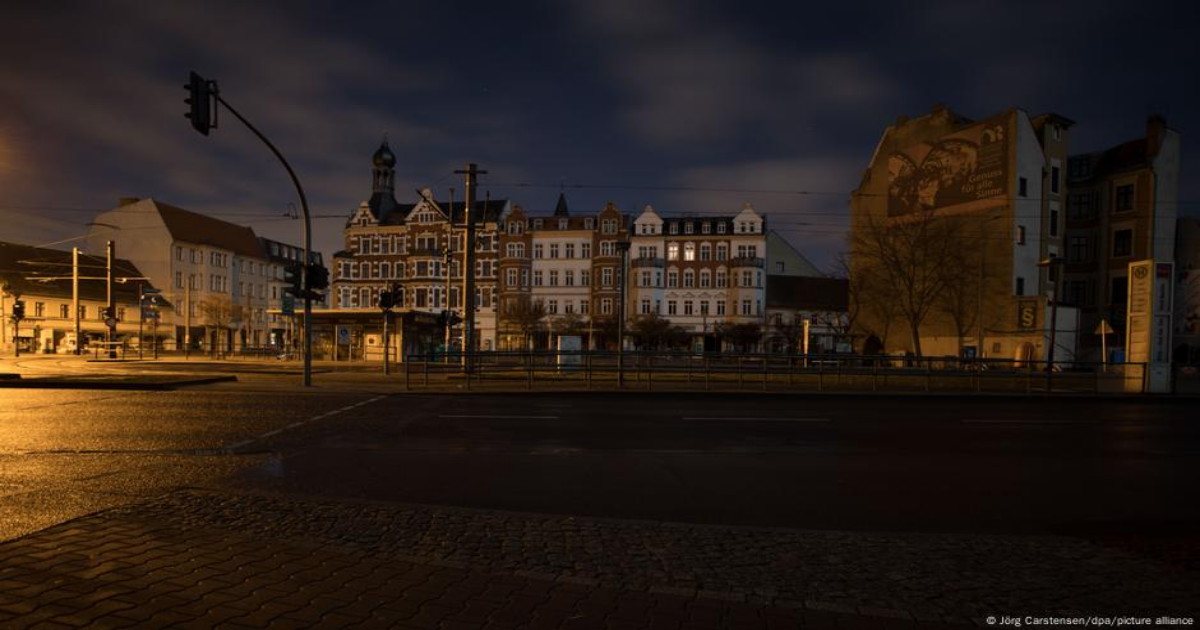No traffic lights, no trains, no ATMs, no internet. The massive power outage this Monday, mainly in Spain and Portugal, paralyzed life across the affected countries. It is not yet clear what caused it and a cyber attack has not been completely ruled out.
In Germany, authorities have been making reassuring statements.
“A large-scale, long-lasting blackout is unlikely in Germany,” said the responsible Federal Network Agency.
The German power grid is designed to be redundant, the agency explained. This means that if one line fails, another can replace it immediately.
But the uncertainty remains. How secure is the supply of energy and water, transportation, communication, health and financial services in Germany, or in other words, the critical infrastructure?
Germany also has grounds for concern: Last week, the Berlin Senate reported that there had been a cyberattack on the electronic service portal. The police force was also affected.
And these are just the most recent cases. Attacks on critical infrastructure occur repeatedly: Data cables in the Baltic Sea are damaged, networks are paralyzed, and company IT networks are tapped into.
An estimated 80% of Germany’s critical infrastructure is owned by private industrial companies. However, public offices are increasingly falling victim to hacker attacks, including the parliament, the Bundestag, and federal ministries in Berlin. Such attacks affect important democratic institutions.
Money for bridges, schools, roads and critical infrastructure
The next German government is now planning significant investment in infrastructure, particularly with the new special fund of €500 billion ($570 bn). These investments are to be made over a period of 12 years and will go into transport, digitalization and energy infrastructure.
To view this video please enable JavaScript, and consider upgrading to a web browser that supports HTML5 video
Last year, the German government was about to introduce a law to strengthen the critical infrastructure, but it got shelved when the government collapsed.
Now, the likely new government of the center-right Christian Democratic Union (CDU) and Christian Social Union (CSU) with the center-left Social Democratic Party (SPD) has documented its intention to introduce such legislation. In view of mounting terror threats, organized crime, hybrid cyber attacks and the Russian war of aggression in Ukraine, the government intends to strengthen cybersecurity, civil protection and disaster control as well as civil defense.
The Federal Office for Information Security (BSI) is to be expanded into a central office for cybersecurity. And there will be new guidelines allowing only components manufactured by “trustworthy countries” to be installed in Germany’s critical infrastructure. Small and medium-sized enterprises are to receive advice on how to protect themselves better, as they are also increasingly affected by cyberattacks.
The commitment to critical infrastructure is also to be strengthened at the European Union level. The ProtectEU project was recently presented in Strasbourg. The responsible security commissioners have pointed to increasing insecurity among the population due to rising concern about the risk of terrorism and hybrid threats.
“The frequency and sophistication of hostile acts that undermine the security of the EU have increased,” the strategy paper states.
To view this video please enable JavaScript, and consider upgrading to a web browser that supports HTML5 video
Malicious actors have significantly expanded their arsenal. Hybrid campaigns such as acts of sabotage against critical infrastructure, arson, cyber attacks, election interference, and the spread of false information, especially on irregular migration, have all intensified.
EU institutions are not exempt from these attacks. In future, the EU wants to pool findings on possible attacks at a single hub, the Single Intelligence Analysis Capacity (SIAC). The police authority Europol is to be expanded and data exchange between the member states improved.
All this is intended to make critical infrastructures in Europe and Germany more resilient.
This article was originally written in German.
While you’re here: Every Tuesday, DW editors round up what is happening in German politics and society. You can sign up here for the weekly email newsletter Berlin Briefing.
